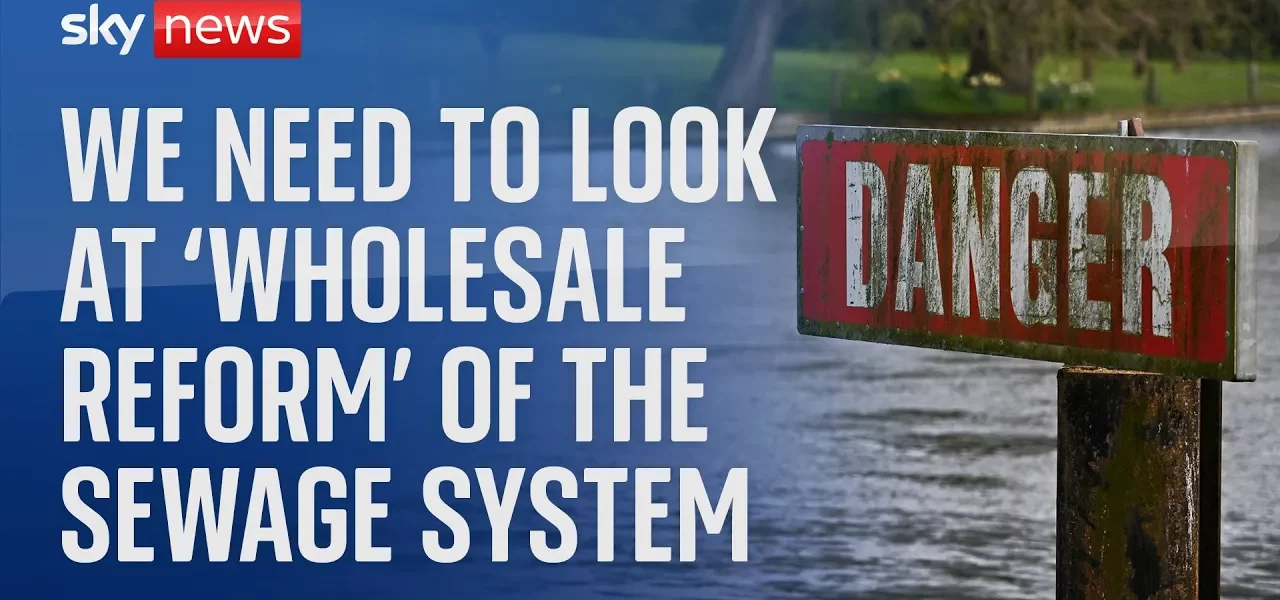The National Scandal of Sewage Discharges in UK Waterways

This article delves into the alarming issue of sewage discharges into rivers and seas across the UK, examining the current state of water companies, the proposed reforms, and the implications for public health and environmental protection.
Introduction
The issue of sewage discharges into UK waterways has reached a critical point, becoming a national scandal that demands immediate attention. Recent findings indicate that storm overflows from water companies have reached a three-year high, alarming many citizens who enjoy summer holidays along the coast. This article seeks to unpack the complexities surrounding unauthorized sewage discharges, the financial implications for water companies, and the urgent need for systemic reform within the water sector.
The Alarming Rise of Sewage Discharges
Data reveals a disturbing trend: the number of storm overflows has surged, with over 250 incidents occurring even when it wasn’t raining. This raises questions about the infrastructure of water companies and their ability to manage wastewater effectively.
The Extent of the Problem
Water companies have claimed that inadequate infrastructure is to blame. Heavy rainfall exacerbates the issue, leading to unauthorized discharges. Key statistics include:
- Three-year high in storm overflows
- Over 250 unauthorized discharges during dry conditions
- Public health risks associated with contaminated waterways
Impact on Public Health and Environment
The repercussions of these discharges are significant, affecting both public health and the environment. Contaminated waterways can lead to:
- Increased risk of waterborne diseases
- Harm to aquatic life and ecosystems
- Negative effects on tourism and local economies
Proposed Reforms for Water Companies
In light of the growing crisis, there are urgent calls for reforming the water sector. Advocates are pushing for water companies to be transformed into public benefit companies, focusing on the following key points:
Reinvestment of Profits
One of the core proposals is that profits generated by water companies should be reinvested back into improving infrastructure, rather than being distributed to shareholders. This would ensure:
- Improved wastewater management systems
- Enhanced public accountability
- Long-term environmental sustainability
Regulatory Overhaul
Another critical aspect of the proposed reforms involves a complete overhaul of the current regulatory framework. Key changes suggested include:
- Replacing Ofwat with a new regulator that has robust enforcement capabilities
- Implementing bans on executive bonuses linked to company performance
- Consolidating regulatory responsibilities under one authority to eliminate jurisdictional confusion
Financial Implications and Shareholder Responsibilities
Addressing the financial concerns of water companies is paramount. Critics argue that shareholders should bear the financial burden instead of consumers. Here’s how that can be achieved:
Funding Through Shareholder Contributions
Proponents suggest that the funds required for infrastructural improvements should come from shareholders who have profited significantly over the years. This approach would involve:
- Legislation mandating shareholder contributions to infrastructure projects
- Ensuring that consumers are not further burdened by price hikes
- Fostering a culture of accountability within water companies
The Role of Government Legislation
The recent announcement of a water bill provides a crucial opportunity for the government to enact these changes. Effective legislation would:
- Facilitate the transition to public benefit companies
- Establish stricter penalties for non-compliance
- Encourage investment in sustainable practices
Conclusion
The crisis of sewage discharges into the UK’s waterways is a pressing issue that requires immediate and comprehensive action. By reforming water companies into public benefit entities and overhauling the regulatory framework, we can ensure safer, cleaner waterways for all. It is time for stakeholders, including the government and shareholders, to take responsibility and prioritize environmental protection. We encourage readers to stay informed and advocate for these essential reforms to safeguard our natural resources.
“`




